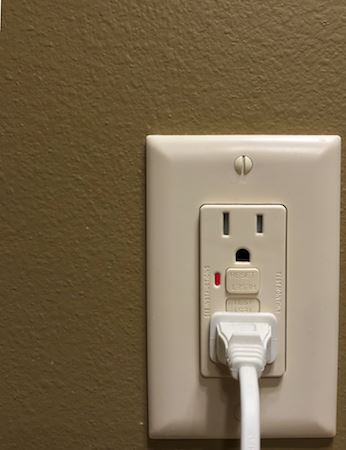Chances are you’re familiar with the concept of GFCI – ground fault circuit interrupter.
GFCI receptacles became mandatory in all houses built in 1971 forward. Initially, they were only required outside and around swimming pools. But because of their safety features, they moved indoors and are needed anywhere there is water, such as the kitchen, bathroom, laundry room, and garage.
GFCI is intended to protect people from shock. If you head into your kitchen or bathroom, you’ll find these receptacles nearby if your electrical system is up to code. GFCI outlets can be identified by having two small buttons between the two receptacles labeled “reset” and “test.”
Now let’s talk about ALCI. ALCI stands for appliance leakage current interrupter. ALCI plugs are safety features built into some appliance cords or plugs. They are designed to keep you safe from shock when plugged in.
Pull your hairdryer out of the drawer or cabinet. Chances are it has an ALCI plug attached to it. It’s built similarly to a GFCI receptacle; you’ll find a “reset” and “test” button located on the plug.
ALCI plugs are used to monitor the current coming into the appliance. If the device senses an imbalance, it cuts off power in a fraction of a second. Think of it as a circuit breaker to your appliance. If it senses danger, it eliminates the risk.
Again, GFCI outlets are required in any wet area. If there’s a chance for you to come into contact with a water supply while using whatever you plugged in, GFCI will protect you and cut the power in the event of a problem. GFCI works with or without something plugged in, which can be beneficial in the case of a flood. If water rises too high, power is cut, reducing your risk when you step into the space.
ALCI is designed to protect you, one appliance at a time.
To learn more about navigating Atlanta’s electrical codes, including information on GFCI and ALCI, you can visit our comprehensive guide.
Is your electrical system up to code? Is it working the way it’s supposed to? No question is too trivial when it comes to safety. Give us a call with all of your electrical needs, including electrical code inspection and correction services.

